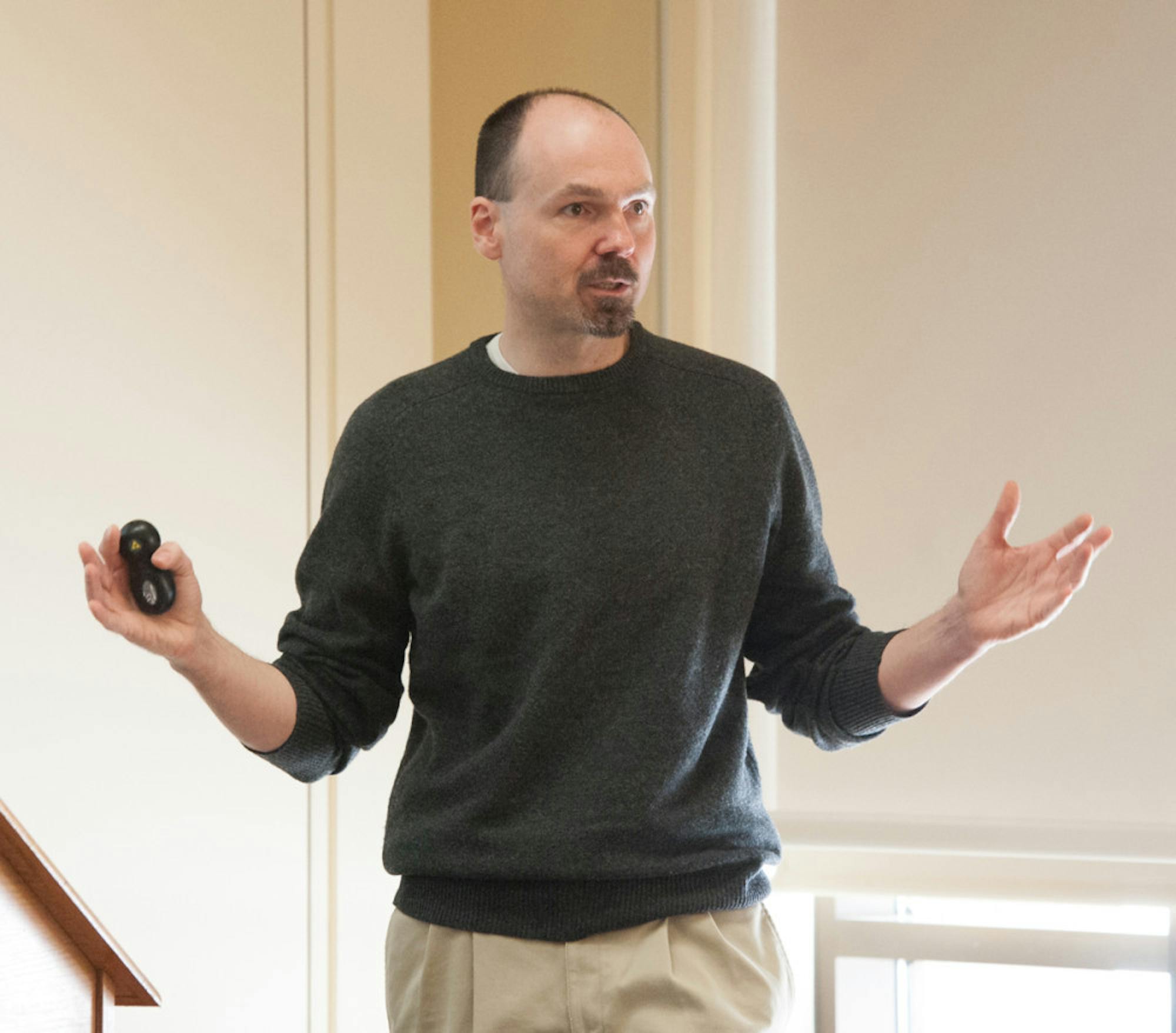In a talk Thursday, professor of political science at University of Colorado Boulder Jaroslav Tir said preventing civil war and the horrors that come with it require a change of perception.
Academia’s study of civil war is often not as in-depth as its study of interstate war, which leads many experts to overlook the most important aspects of these conflicts, Tir said.
“We [Tir and colleague Johannes Karreth] think of civil wars as not just something where you pull a switch, flip a trigger of some sort and then you suddenly have a civil war,” he said. “This is something that is actually a process that builds up over time. So we’re thinking about looking at civil wars from a developmental perspective.
"Incidentally, this has been done in the context of interstate war, but it hasn’t really been applied before to civil war all that much.”
Tir said the goal of his research was to find the most effective way to prevent civil wars from breaking out because ending the violence of war is much more difficult once the fighting begins.

“Some of the consequences of civil wars actually turn out to be predictors of civil wars as well, which means that countries that have experienced one civil war find themselves in this business of what’s called a civil war trap, or a conflict trap,” Tir said. “… Basically, Ms. Taylor Swift would be disappointed by these countries that cannot just ‘shake it off’ and that get caught over and over again [in civil war].”
Tir said one reason nations continue to fall into civil war is because of the distrust between civil war rebels and the governments they are fighting against. Tir described this lack of trust as the "credible commitment problem," which impedes peace efforts.
“The rebels [in a civil war] worry and fear that the government won’t hold up its end of the bargain, and this is the story why peace deals may be difficult to reach or why they ultimately fall apart,” Tir said. “… So if we’re going to come up with a way to prevent civil wars, we have to tackle this really tricky problem.”
While traditional intergovernmental organizations (IGOs) often lack the tools to influence their member states' policies, particular organizations known as highly-structured intergovernmental organizations (HSIGOs) hold the key to tackling the credible commitment problem and preventing civil war, Tir said.
“What it takes to qualify as one of these highly-structured IGOs is that they have independent administrative monitoring bodies – which means the government of these member states can’t just shut the organization down if the organization is doing something the government doesn’t like," he said. "So they have some authority, some oversight, basically, that is independent from the member governments.”
These organizations, which include the World Bank and the International Monetary Fund, are able to influence the political policy of member states because they provide the aid on which many nations that struggle with conflict rely. This pushes governments to respond peacefully to rebel groups and even prevents violence from the rebel groups themselves, Tir said.
“If the rebels were to overplay their hand … what would happen is that these HSIGOs would probably stop constraining the government or at least release some of their constraints," he said. "… So we argue that the rebels are actually better off playing along in this structure of interactions, which actually constrains the government indirectly and the rebels as well, which basically pushes their preferences toward peace and away from public escalation."













